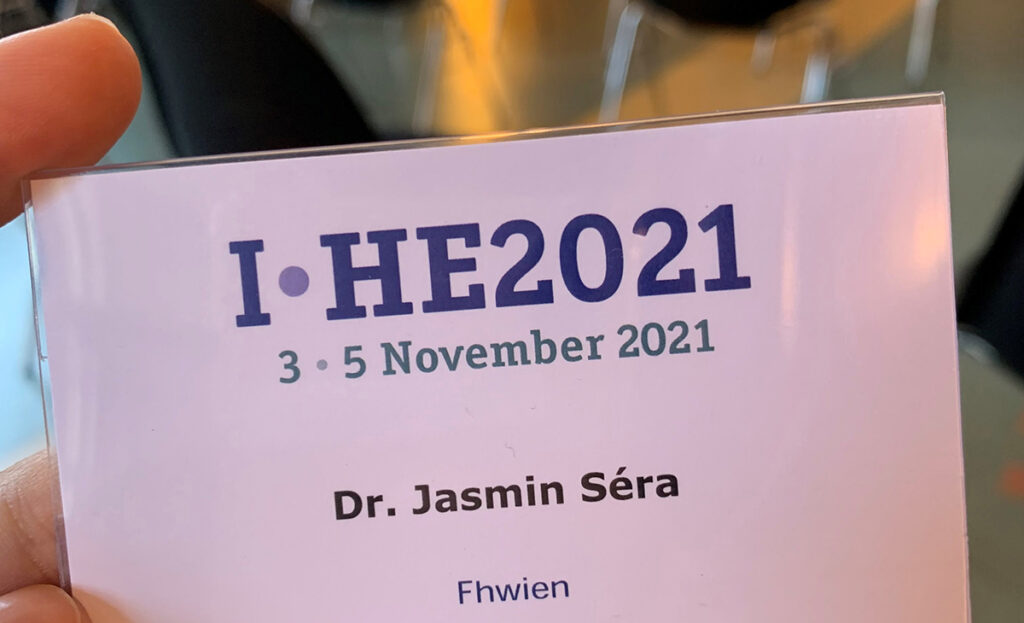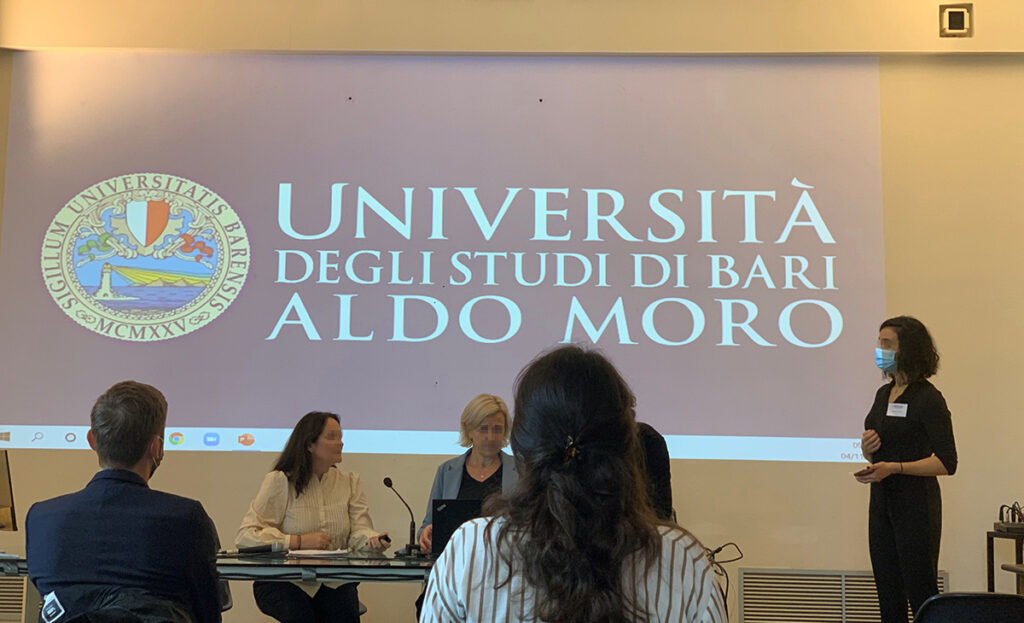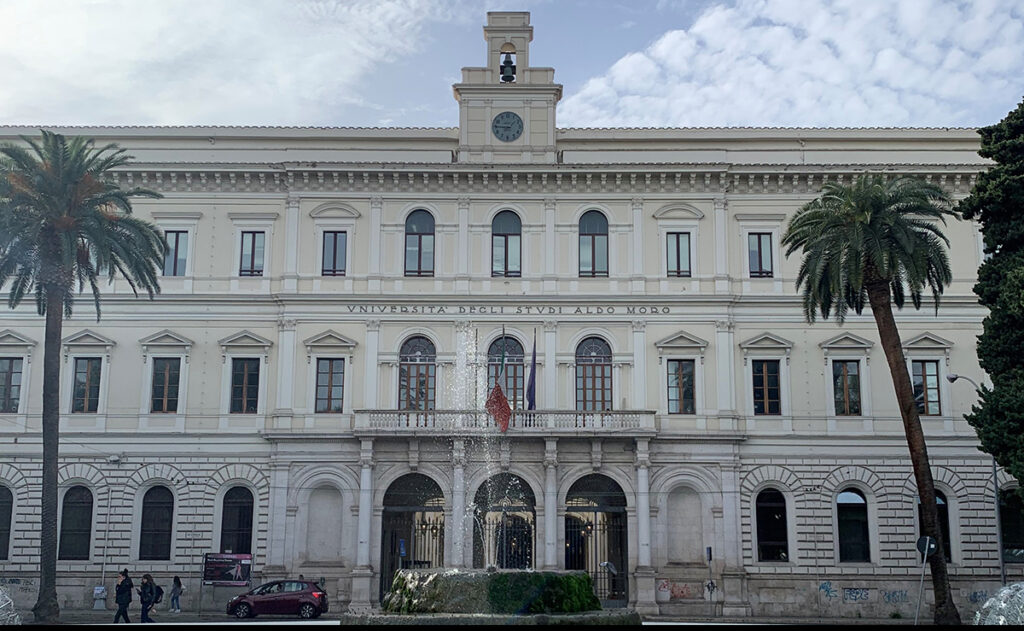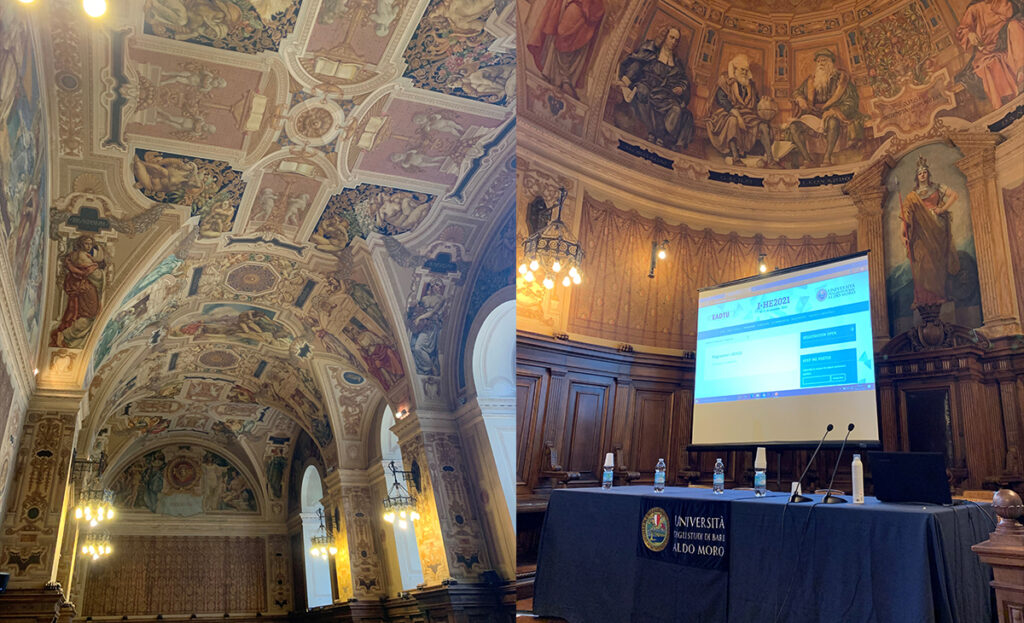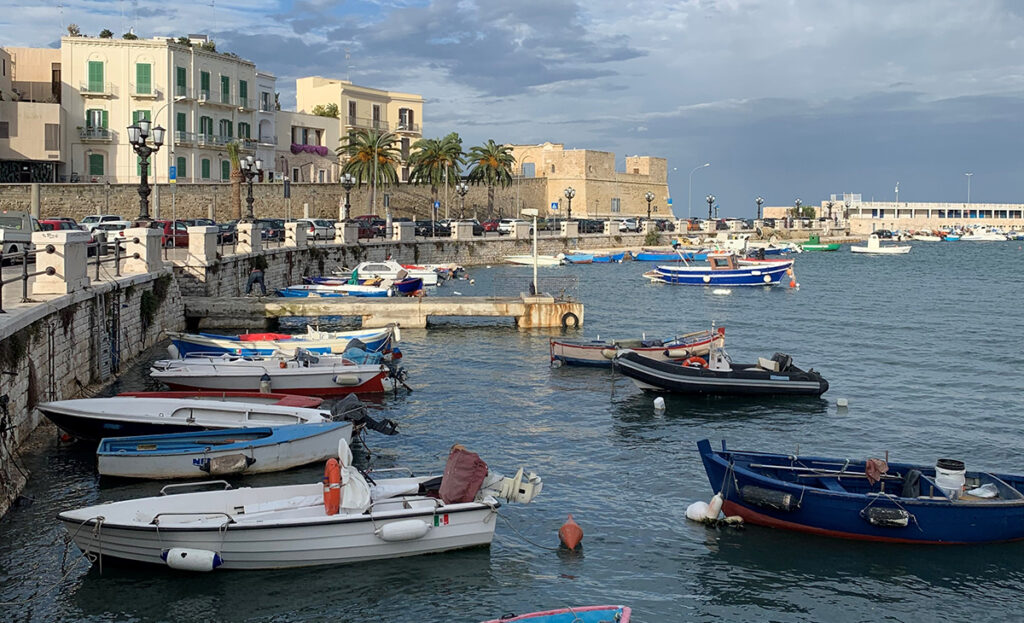E-assessments should be more than just an emergency solution. Jasmin Séra from the City of Vienna Competence Team for the Digitalization of Communication presented the various approaches at the EADTU I-HE Conference 2021 in Bari, Italy.
Since the outbreak of the COVID-19 pandemic, the City of Vienna Competence Team for the Digitalization of Communication, which has been funded by MA23 since 2019, has placed a special focus on the experiences of students and teachers during this period. Thus, in the course of a project, four online surveys with students and teachers of FHWien der WKW were conducted and evaluated. Jasmin Séra, Teaching and Research Associate at the Department of Communication at FHWien der WKW, now presented one of these research papers at the EADTU I-HE Conference 2021 on „Higher Education in the new normal, the role of online, blended and distance learning“ in early November 2021. The conference was hosted by the University of Bari Aldo Moro in Italy.
Optimize and establish e-assessments
Based on the findings of the surveys, the researchers focused primarily on student and faculty satisfaction with distance education. In the course of their study, they determined which areas still need improvement. They paid special attention to the area of “e-assessment” as many exams had to be held very spontaneously in a distance learning format especially in March 2020. Finding the optimal setting for this was the topic of the presented paper entitled „Can e-assessments be more than just an ‘emergency solution’? – Higher education readiness for online assessments versus room for improvement.“ The City of Vienna Competence Team for the Digitalization of Communication, which besides Jasmin Séra consists of the team members Tilia Stingl de Vasconcelos Guedes and Georg Feldmann, examined various existing didactic principles. For example, guiding principles in education based on the “Agile Manifesto” were looked at in more detail to optimize the e-assessment experience of students and teachers.
Best Practice Example “Agile Methods and Education”
On the basis of the principles of agile methods, which focus on rapid adaptation to the current work or study environment, it is recommended to constantly incorporate student feedback when preparing e-assessments. It is necessary to be flexible and tolerant to keep up with the ever-changing environments. Rather than focusing on creating a fictitious situation that simulates on-site presence during e-assessments (e.g., proofreading), it is recommended to learn from the actual environment and situation. In addition, it is necessary to develop new concepts that work for students and institutions instead of recreating an environment that does not correspond to the reality of students. Finally, there should be an attempt to move from the traditional and (perhaps) rather conservative approach of asking for standard knowledge to a more competency-based knowledge. This includes encouraging “out-of-the-box” thinking, critical thinking, and linking thinking.
Thanks to Jasmin Séra, who sent us these wonderful pictures: Bari, the capital of the southern Italian region of Puglia, also showed its most beautiful side away from university buildings!
